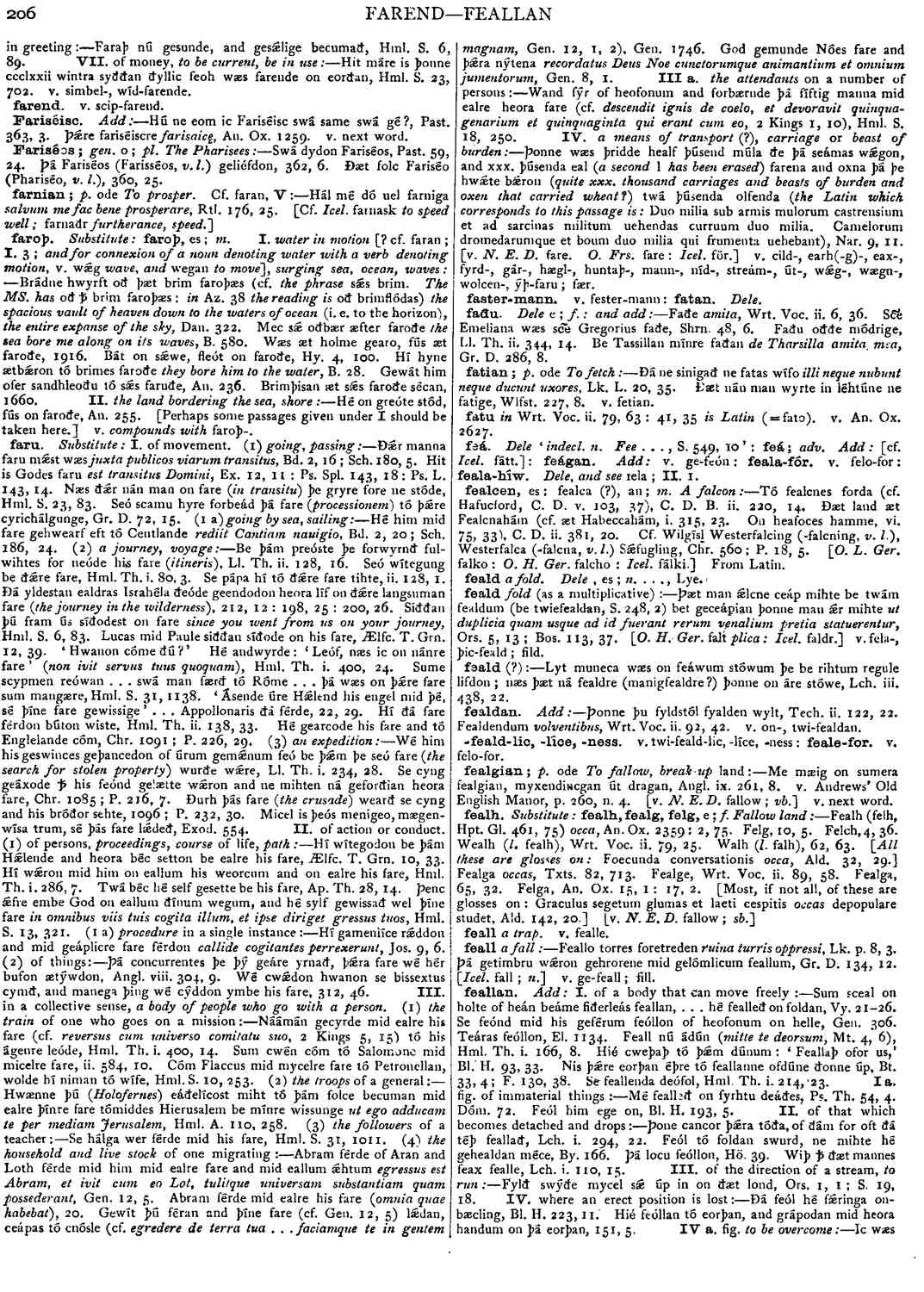faroþ
- noun [ masculine ]
-
Brádne hwyrft oð þæt brim faroþæs
(cf. the phrase sæ-acute;s brim. The MS. has oð ꝥ brim faroþæs: in Az. 38 the reading is oð brimflódas)the spacious vault of heaven down to the waters of ocean (i. e. to the horizon),
the entire expanse of the sky,
- Dan. 322 .
-
Mec sǽ oðbær æfter faroðe
the sea bore me along on its waves,
- B. 580 .
-
Wæs æt holme gearo, fús æt faroðe,
- 1916.
-
Bát on sǽwe, fleót on faroðe,
- Hy. 4, 100 .
-
Hí hyne ætbǽron tó brimes faroðe
they bore him to the water,
- B. 28 .
-
Gewát him ofer sandhleoðu tó sæ-acute;s faruðe,
- An. 236 .
-
Brimþisan æt sæ-acute;s faroðe sécan,
- 1660.
-
Hé on greóte stód, fús on faroðe,
- An. 255 .
Bosworth, Joseph. “faroþ.” In An Anglo-Saxon Dictionary Online, edited by Thomas Northcote Toller, Christ Sean, and Ondřej Tichy. Prague: Faculty of Arts, Charles University, 2014. https://bosworthtoller.com/44543.
Checked: 1